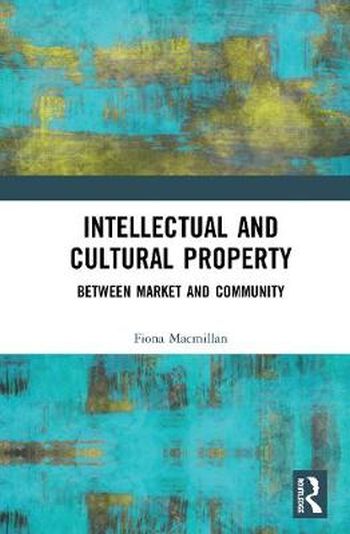
This book focuses on the fraught relationship between cultural heritage and intellectual property, in their common concern with the creative arts.
The competing discourses in international legal instruments around copyright and intangible cultural heritage are the most obvious manifestation of this troubled encounter. However, this characterization of the relationship between intellectual and cultural property is in itself problematic, not least because it reflects a fossilized concept of heritage, divided between things that are fixed and moveable, tangible and intangible. Instead the book maintains that heritage should be conceived as part of a dynamic and mutually constitutive process of community formation. It argues, therefore, for a critically important distinction between the fundamentally different concepts of not only intellectual and cultural heritage/property, but also of the market and the community. For while copyright as a private property right locates all relationships in the context of the market, the context of cultural heritage relationships is the community, of which the market forms a part but does not - and, indeed, should not - control the whole. The concept of cultural property/heritage, then, is a way of resisting the reduction of everything to its value in the market, a way of resisting the commodification, and creeping propertization, of everything. And, as such, the book proposes an alternative basis for expressing and controlling value according to the norms and identity of a community, and not according to the market value of private property rights.
An important and original intervention, this book will appeal to academics and practitioners in both intellectual property and the arts, as well as legal and cultural theorists with interests in this area.